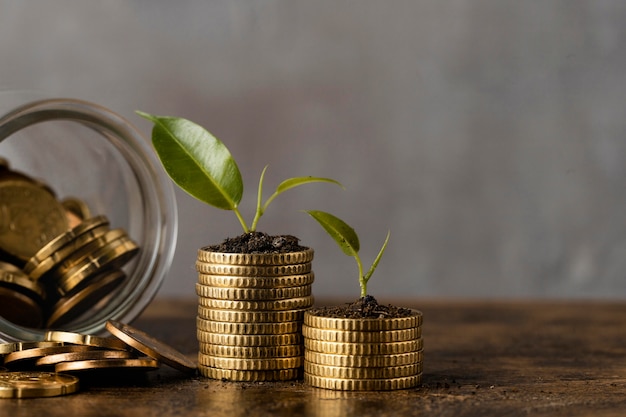Redefining Wealth: How Bank Balances Can Influence Perceived Poverty

The idea of being “poor” is often seen as a simple yes-or-no situation. You’re either poor or you’re not. But in reality, poverty is more like a spectrum, and where you fall on it depends on various factors, including how much money you have saved.
There’s no exact dollar amount that defines poverty, but there are some general guidelines and warning signs to be aware of.
### Do You Have Three Months of Living Expenses Saved?
A common guideline to avoid poverty is having enough savings to cover three months of living expenses. This is the minimum emergency fund that financial experts recommend.
Thomas Brock from Annuity.org explains that it’s hard to define poverty by a specific savings amount because everyone’s financial situation and habits are different. However, a good rule of thumb is to have at least three months of living expenses in a highly liquid form. Not having this emergency reserve can be a sign of poverty.
Life is unpredictable, and unexpected costs like car repairs, medical bills, or home repairs can arise. Without a financial safety net, these costs can quickly lead to overwhelming debt.
Mark Henry, CEO of Alloy Wealth Management, emphasizes the importance of an emergency fund. Without it, unexpected expenses can put you back in debt, even if you’ve worked hard to pay off your credit cards. Most people aim to save three to six months of expenses to cover emergencies. Even if you can’t save that much, every little bit helps.
Building up savings can be challenging, especially if you’re living paycheck-to-paycheck. But even saving a few dollars here and there can make a big difference in an emergency. It’s better to have some cushion, no matter how small, than to be completely unprepared.
### Are You Making Ends Meet Without Going Into Debt?
Being able to pay all your bills on time without relying on credit cards or other forms of debt is a good sign that you might not be living in true poverty. If you can cover your expenses with just your income, even if you have little left over, you’re at least staying afloat financially. You might not be getting ahead, but you’re not sinking further into debt each month.
Mark Henry explains that being poor means lacking enough money to live comfortably or normally in society. While there’s no specific amount that makes you “poor,” you should be able to pay for basic living expenses like food, housing, and utilities without going into debt.
If you can pay your bills and slowly build some savings, even if it’s just a little, it indicates financial insecurity but not necessarily poverty.
### Are You Living Paycheck-to-Paycheck?
Living paycheck-to-paycheck is a clear sign of financial insecurity. If every penny you earn goes towards bills, food, and other necessities, you have no room to save or handle unexpected expenses.
Mark Henry suggests that if you’re living paycheck-to-paycheck and struggling to make ends meet, it’s time to take a closer look at your finances and lifestyle.